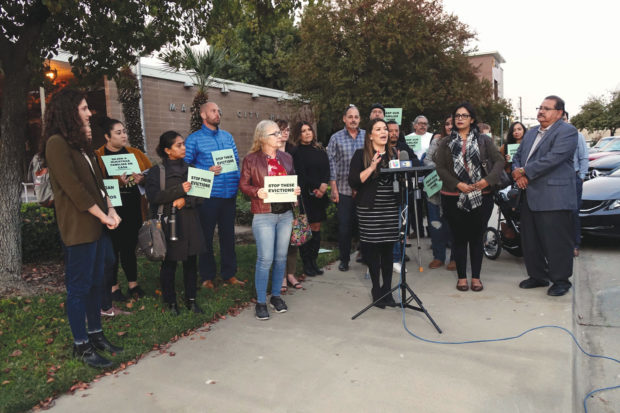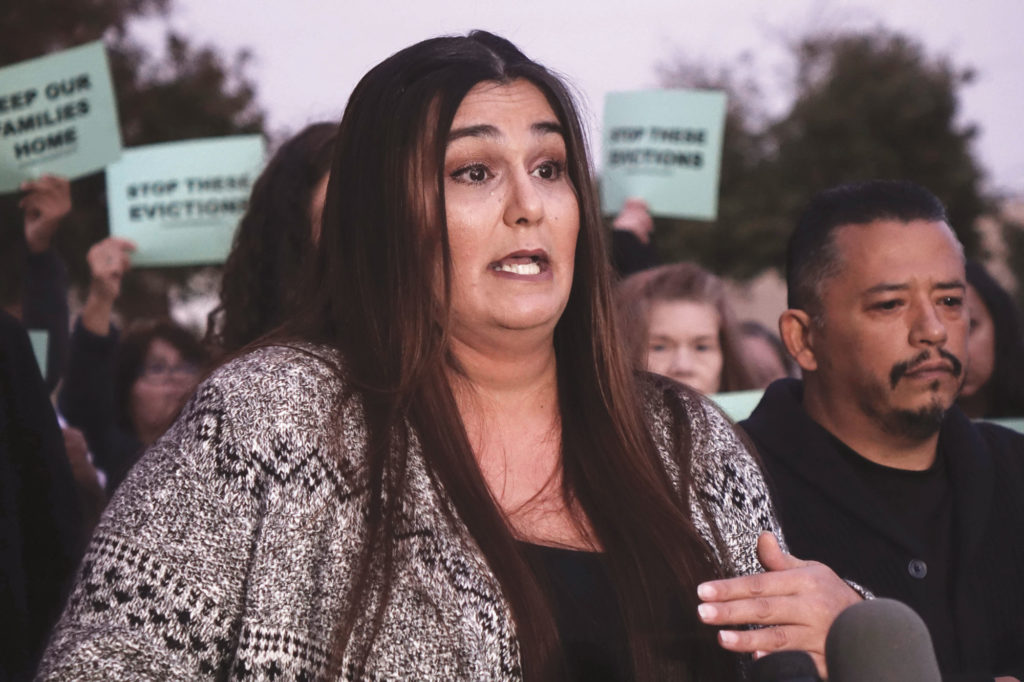
By Eduardo Stanley
Last October, 30 families living in the Laguna Knoll apartment complex of Madera received a no-fault 60-day eviction. This decision sparked the reaction of City Council Member Santos Garcia, who asked the City of Madera to pass a temporary ban on no-fault evictions until Dec. 31, 2019.
The City Hall unanimously passed the resolution on Nov. 20 after a heated debate.
Garcia said that the owner of the apartment complex was planning to jump rents from $800 per month to $1,300. This is a trend in most California cities, apparently in an effort to beat the Jan. 1, 2020, implementation of a new law protecting renters’ rights.
AB 1482, the Tenant Protection Act of 2019, introduced by David Chiu (D–San Francisco), was signed into law by Gov. Gavin Newsom on Oct. 8. This new law set a cap of a 5% rent increase per year—plus local cost of living. If a no-fault renter (meaning the renter pays on time and keeps the property well) is evicted, the owner of the property has to compensate that renter with a free month’s rent or the financial equivalent.
Most tenants at Laguna Knoll are low-income families. They were outraged by the no-fault eviction notice so they mobilized in search of support.

“I spent over $200 on gas searching for a place to live, but I couldn’t find anything decent I could afford,” said an emotional Michelle Aguilar, whose husband is disabled. “I visited several cities in the Valley.”
Aguilar commented also that she, like many other residents at Laguna Knoll, paid rent on time and keep the property in good shape.
Other residents stressed the lack of affordable housing in Madera during a press conference before the vote at City Hall.
Fresno City Council Member Esmeralda Soria, who was appointed by Governor Newsom to the homeless task force, joined Madera residents in solidarity. She pointed out that most of them would be homeless if evicted.
“Most who opposed the resolution are investors or people doing real estate business,” said Garcia. “I talked to all council members and told them we need to pass the resolution unanimously. And we did.”
Madera is the first city in the Valley to pass such a resolution. But other cities around the state have done so following pressure from renters served with similar eviction notices and activists. California is experiencing a severe housing crisis, one of the causes of the high level of homelessness. (See “Eviction Epidemic” on the front page of this edition of the Community Alliance.)
“At the beginning, some people were telling us we couldn’t do anything because renters are not protected,” said Garcia. “Our city attorney did research and found what other cities were doing, so we follow that lead.”
The housing crisis and gentrification is changing California’s landscape in its main cities, like San Francisco and Los Angeles. In the Central Valley, affordable housing is scarce, while developers continue building apartments and neighborhoods aimed at middle- and upper-class customers.
Fresno County announced recently that it will sell the former Community Hospital building property in south Fresno to a management group that plans to build a housing complex for low-income residents.
*****
Eduardo Stanley is the editor of the Community Alliance newspaper.
